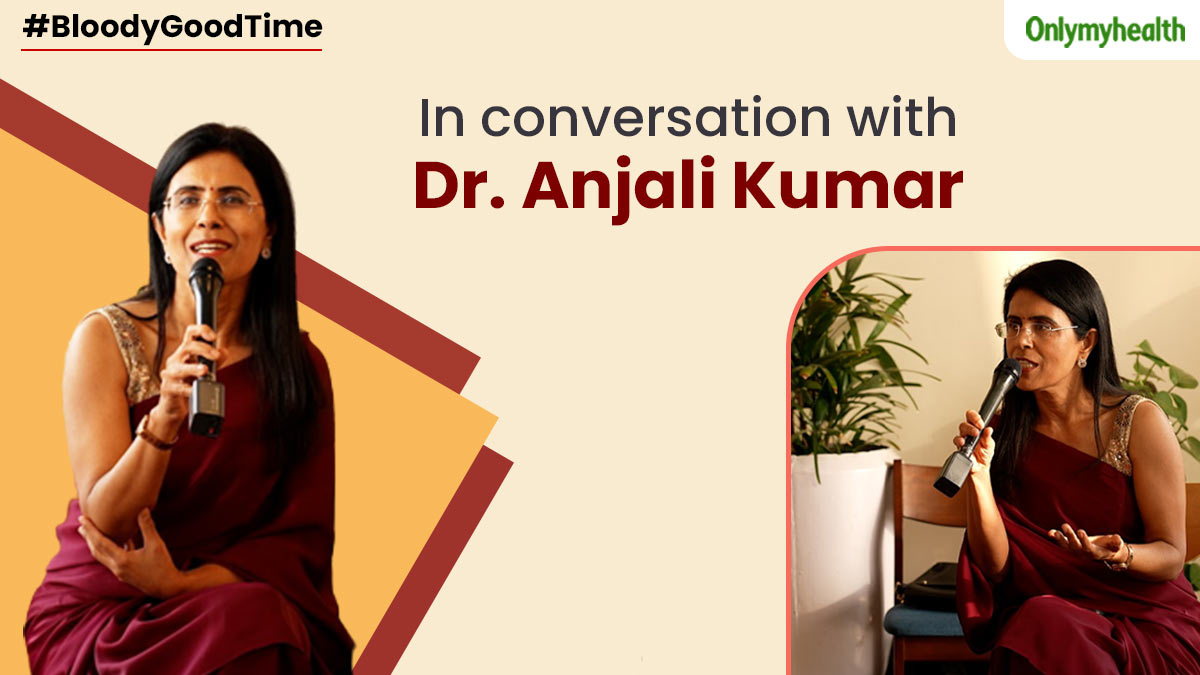
Menstruation is a natural process experienced by approximately half of the global population, yet it has been shrouded in silence, stigma, and misinformation for centuries. Menstrual hygiene and period education play a vital role in empowering women, breaking societal taboos, promoting health, and ensuring gender equality. In this article, we delve into the significance of menstrual hygiene and period education, the challenges faced by women worldwide, and the initiatives that aim to create a positive change.
Table of Content:-
Ahead of the World Menstrual Hygiene Day the health and lifestyle vertical of Jagran New Media, OnlyMyHealth and HerZindagi organised and hosted a period party where menstruators talk, and celebrate menstruation openly and without shame. The objective of this period party was to bring a group of women under one roof and spread awareness about menstruation and womanhood.
Among the many attendees, the event consisted of menstrual hygiene experts, menstruation educators/activists, gynaecologists, and nutritionists. One of the key experts at the period party event was Dr. Anjali Kumar (aka Maitriwoman), MBBS, MD- Gynecologist & Obstetrician.
Dr Kumar took the stage as she elucidated in detail about menstrual hygiene, period education, and the impact of poor hygiene during menstruation.

Also read: OnlyMyHealth x HerZindagi Organise The First Ever Period Party
Understanding Menstrual Hygiene
Menstrual hygiene refers to the practices and materials used to manage menstruation in a clean and healthy manner. It encompasses access to sanitary products, facilities for safe disposal, and the adoption of proper personal hygiene practices during menstruation. Sadly, numerous girls and women face significant challenges in maintaining good menstrual hygiene due to various social, cultural, and economic factors.
Dr Kumar Shares The Global Challenge During Periods
Around the world, millions of women and girls face menstrual health-related barriers that impede their overall well-being and development. In low-income communities, access to affordable and hygienic menstrual products remains a significant challenge. Inadequate sanitation facilities, lack of clean water, and limited access to healthcare exacerbate these difficulties. Consequently, many girls miss school, hindering their educational opportunities and perpetuating gender inequality.
What Is The Menstrual Taboo?
One of the most persistent challenges surrounding menstrual hygiene is the deep-rooted menstrual taboo. Menstruation is often considered impure or shameful in many cultures, leading to exclusion, discrimination, and silence. These taboos contribute to the lack of open dialogue, limited knowledge, and perpetuation of myths surrounding menstruation, shares Dr Kumar.

Also read: OnlyMyHealth x HerZindagi Organise The First Ever Period Party
Importance of Period Education In Empowering Women and Girls
Period education is a crucial aspect of promoting menstrual hygiene and breaking the stigma associated with menstruation. It involves providing comprehensive information about menstruation, reproductive health, and empowering women to make informed choices about their bodies. By fostering period education, we can eliminate misinformation, address social norms, and challenge the prevailing stigma.
Menstrual hygiene and period education have the power to transform women's and girls' lives by empowering them and breaking the cycle of inequality. When women have the knowledge, resources, and support to manage their periods safely and comfortably, they can fully participate in education, work, and community life. Menstruation should not be a barrier to women's progress and should never hinder their potential. By creating an enabling environment, we can foster gender equality and women's empowerment on a global scale.
Menstrual hygiene and period education are crucial components of women's health, well-being, and empowerment. Breaking the taboos surrounding menstruation, providing accurate information, and ensuring access to menstrual products and facilities are vital steps towards achieving gender equality and social justice. By doing so, we can create a world where every woman and girl can embrace her menstruation, shares Dr Kumar.
Also watch this video
How we keep this article up to date:
We work with experts and keep a close eye on the latest in health and wellness. Whenever there is a new research or helpful information, we update our articles with accurate and useful advice.
Current Version